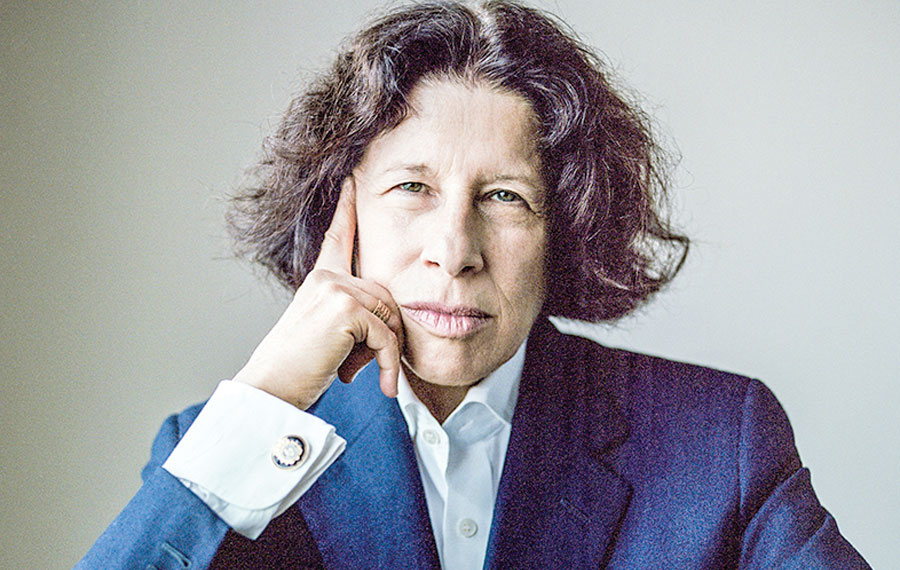 Photo from Facebook
Photo from Facebook The 1970s were a grim decade in New York: the city teetering near bankruptcy, the Son of Sam murders, Studio 54.
If there was a bright spot, it was author, public speaker and occasional actor Fran Lebowitz’s monthly column, “I Cover the Waterfront,” on the last page of Andy Warhol’s Interview magazine. Her columns were tart, finely observed and urbane, filled with word play and aphoristic pronouncements that earned her comparisons to Dorothy Parker.
Collected in two books, “Metropolitan Life” and “Social Studies,” now compiled in “The Fran Lebowitz Reader,” they still bristle with a keen intelligence and can still make you laugh, even if some of the subjects have long since faded into the past.
Lebowitz, 67, had a recurring role as a judge on “Law and Order” from 2000-07 and was the subject of Martin Scorsese’s 2010 HBO documentary “Public Speaking.” But she hasn’t published another book since 1981. Her distinctive, world-weary voice occasionally pops up in Vanity Fair, a bracing shot of bitters against the cotton candy of lifestyle journalism. There were rumors of two novels, “Progress” and “Exterior Signs of Wealth,” but the promised publication dates passed without issue.
Speaking with the Journal by telephone from her home in New York recently, she said she was about halfway through both books and had proposed publishing them together — “Two halves make a whole, right?” — but for some reason her publisher was less than enthusiastic. The problem with publishing, she said, is that no one has any sense of fun.
Lebowitz indulged in a free-ranging conversation, chatting about everything from the Donald Trump administration and what really bothers her, to ruminating about Jewish comedians and the disparate quality of bagels in New York and Los Angeles.
Jewish Journal: As a funny person and a Jew, why do you think Jews are so associated with comedy?
Fran Lebowtiz: I’m not sure that’s true any more. There are still funny Jews and Jewish comics, but Jewish comedians, as a group, they’re no longer prominent. Their place has been taken by Black comedians. I don’t watch much TV, but whenever I see a comedian and think they’re funny — they’re Black. And it’s happened for the same reason. It’s immigrant humor; it’s the point of view of the outsider looking in. Jews are still thought of as comic. A friend of mine was looking to cast a comedian and there was one person she liked, but didn’t cast. He wasn’t Jewish, she said. Neither was she, I told her. “But I’m from New York,” she said. As if it’s the same thing.
But funny is funny. Look at Leo Rosten. He’s the Jewish James Thurber. The kind of writer who makes you laugh out loud. I made a friend of mine read “The Education of H*Y*M*A*N K*A*P*L*A*N” — she’s Boston Italian — and she agreed. But the world of that generation is disappearing. The same with Thurber. That small-town Ohio life: That world is gone. But you can still discover it in a book. That’s why people should read.
JJ: So what do you think caused this change? Assimilation?
FL: The worst thing that happened to the Jews is that so many of them became Republicans … or, even worse, neo-cons.
JJ: Did this change help give us Donald Trump?
FL: [Trump voters] are reactionaries. Look, Donald Trump’s family were German immigrants, and his father, Fred, was a KKK member who probably wished they never left Germany. Many others wish that as well.
A friend is very upset that [people like] Michael Cohen and Stephen Miller work with Trump. But it didn’t start with Trump. Many of the people who advised George W. Bush about Iraq — John Podhoretz, William Kristol — they were Jewish. My mother used to watch the Army/McCarthy hearings in the ’50s, and what drove her crazy was seeing Roy Cohn. That was a name everyone knew was Jewish.
JJ: What bothers you the most?
FL: Telling kids they have self-esteem. When I was young, you were taught not to talk about yourself. But today, not only do kids talk about themselves, they talk about themselves first. Why do kids even need self-esteem? They haven’t done anything yet.
JJ: You once advised chefs that if no one has thought of putting grapes in a chicken dish before, there’s a good reason for it.
FL: I wrote that 40 years ago!
JJ: Speaking of food, what did you think of people complaining about [“Sex and the City” star/New York gubernatorial candidate] Cynthia Nixon ordering a cinnamon-raisin bagel with lox and cream cheese at Zabar’s?
FL: Goyim! What are you going to do with them? Years ago, I took a friend from the Midwest to Lindy’s. She ordered a pastrami on white with mayo. The waiter looked at her and said, “No.” She started arguing with him, and I told him to just bring her a regular sandwich: on rye with mustard.
JJ: Do you notice a difference in audiences when you’re in L.A. from New York?
FL: New Yorkers are quicker. And more aggressive. I take questions from the audience. If you don’t call on a New Yorker, they’ll shout out their question anyway.
JJ: And Los Angeles?
FL: It’s not really a city. It’s gotten better. But those things they call bagels? New Yorkers know they’re just doughnuts. I still can’t take spending hours either driving a car or being driven.
Lebowitz is currently on a speaking tour. She will be appearing at the Theatre at Ace Hotel on Sept. 30, as part of the 2018-19 CAP UCLA season. She’ll be interviewed by KCRW’s Matt Holzman, followed by an audience Q-and-A session.
Steven Mirkin is a freelance writer and a copy editor at the Jewish Journal.




















 More news and opinions than at a Shabbat dinner, right in your inbox.
More news and opinions than at a Shabbat dinner, right in your inbox.